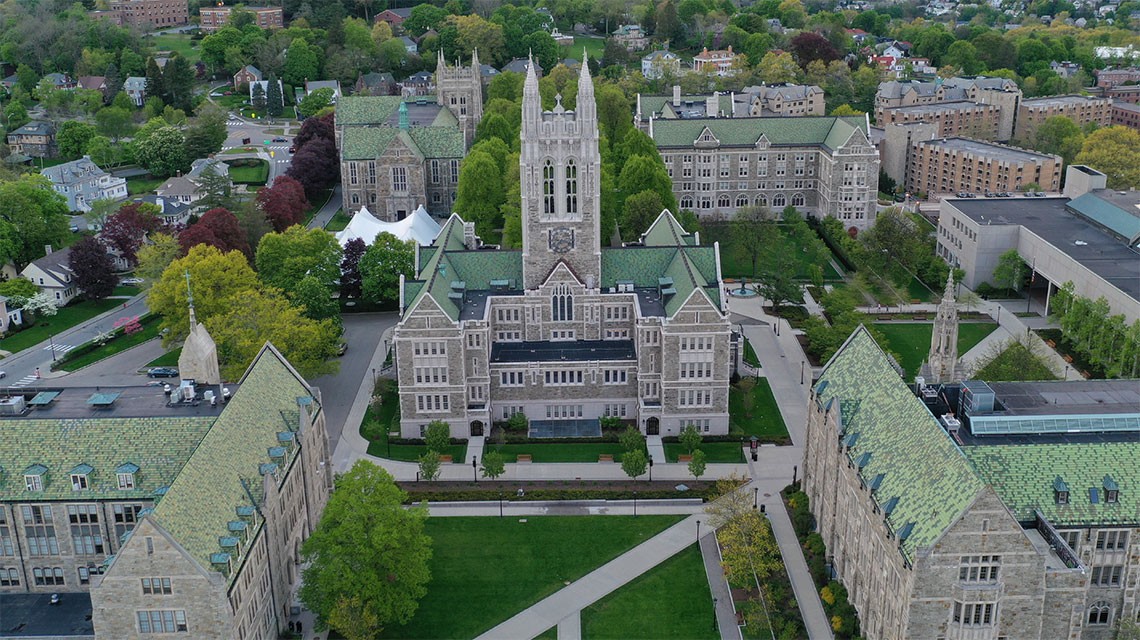New England, with its rich history, vibrant culture, and picturesque landscapes, is not only a haven for history enthusiasts but also a hub for quality education. For those aspiring to become educators, the region boasts several renowned universities that offer exceptional teaching programs. Here, we delve into some of the best universities in New England, USA, where you can pursue a degree in teaching.
Table of Contents
1. Harvard University – Cambridge, Massachusetts
Harvard Graduate School of Education (HGSE): Known as a pinnacle of academic achievement, the HGSE at Harvard University is a global leader in education research, policy, and practice. The school offers a wide array of master’s and doctoral programs, including the renowned Master’s in Education (Ed.M.). This program is highly customizable, allowing students to tailor their studies to their specific interests, with tracks in teaching and curriculum.

Distinctive Features:
- Interdisciplinary Approach: HGSE encourages an interdisciplinary approach, providing opportunities for collaboration with other Harvard schools and departments.
- Innovative Research Centers: Students benefit from engagement with cutting-edge research through various research centers, such as the Harvard Education Redesign Lab.
2. Boston College – Lynch School of Education and Human Development – Chestnut Hill, Massachusetts
Lynch School of Education and Human Development: Boston College’s Lynch School is committed to developing educators who are not only academically proficient but also possess a strong ethical foundation. The school offers a variety of undergraduate and graduate programs, catering to different levels of teaching.

Distinctive Features:
- Holistic Education: The Lynch School emphasizes holistic education, aiming to produce educators who are not just experts in their subject matter but also compassionate leaders in the classroom.
- Global Perspectives: Programs often integrate global perspectives, preparing educators for diverse and inclusive classrooms.
3. University of Connecticut – Neag School of Education – Storrs, Connecticut
Neag School of Education: The Neag School at the University of Connecticut is known for its commitment to research-driven teacher education. It offers a range of undergraduate and graduate programs, including the Integrated Bachelor’s/Master’s (IB/M) program.

Distinctive Features:
- Research Focus: The Neag School places a strong emphasis on research, with faculty and students contributing to advancements in educational theory and practice.
- Innovative Teacher Preparation: The IB/M program streamlines the path to a master’s degree, providing a comprehensive and innovative approach to teacher preparation.
4. University of Massachusetts Amherst – College of Education – Amherst, Massachusetts
College of Education: The College of Education at UMass Amherst is committed to fostering inclusive and socially just education. The undergraduate Teacher Education and Curriculum Studies (TECS) program prepares students for diverse teaching roles.
Distinctive Features:
- Community Engagement: The College of Education encourages community engagement, providing students with opportunities to apply their learning in real-world settings.
- Diversity and Inclusion: The TECS program emphasizes diversity and inclusion, preparing future educators to address the needs of diverse student populations.
5. Tufts University – School of Arts and Sciences – Medford, Massachusetts
School of Arts and Sciences: Tufts University offers a distinctive Bachelor of Science in Education through its School of Arts and Sciences. This program combines a strong liberal arts education with teacher preparation, emphasizing critical thinking and a global perspective in education.
Distinctive Features:
- Liberal Arts Integration: The program uniquely integrates a liberal arts education with teacher preparation, fostering well-rounded educators.
- Global Perspective: Tufts emphasizes a global perspective, preparing educators to navigate diverse cultural and educational contexts.
6. University of New Hampshire – College of Liberal Arts – Durham, New Hampshire
College of Liberal Arts: The University of New Hampshire’s College of Liberal Arts offers a Bachelor of Arts in Education. This program is designed to prepare students for licensure as elementary or secondary school teachers, combining coursework with practical classroom experiences.

Distinctive Features:
- Hands-On Experience: The program incorporates practical experiences in classrooms, ensuring that students are well-prepared for the realities of teaching.
- Licensure Preparation: The focus on licensure ensures that graduates meet the necessary qualifications for teaching roles.
7. Rhode Island College – Feinstein School of Education and Human Development – Providence, Rhode Island
Feinstein School of Education and Human Development: Rhode Island College’s Feinstein School is dedicated to producing effective and reflective educators. The undergraduate programs cover a spectrum of disciplines, including early childhood education, elementary education, and secondary education.
Distinctive Features:
- Reflective Practice: The programs emphasize reflective practice, encouraging educators to continually evaluate and refine their teaching methods.
- Diversity in Disciplines: With a range of disciplines covered, students can specialize in areas that align with their teaching aspirations.
8. Lesley University – Graduate School of Education – Cambridge, Massachusetts
Graduate School of Education: Lesley University is renowned for its commitment to social justice in education. The various master’s and doctoral programs emphasize practical experience, preparing educators to make a meaningful impact in diverse learning environments.
Distinctive Features:
- Social Justice Focus: Lesley University’s programs have a strong emphasis on social justice, preparing educators to address equity and inclusivity in education.
- Practical Experience: The programs incorporate practical experiences, ensuring that graduates are ready to navigate the complexities of real-world classrooms.
These universities, each with its unique strengths, contribute significantly to the education landscape of New England. Whether through a strong liberal arts integration, a focus on reflective practice, or an emphasis on social justice, these institutions provide aspiring educators with diverse pathways to becoming effective and impactful teachers.
